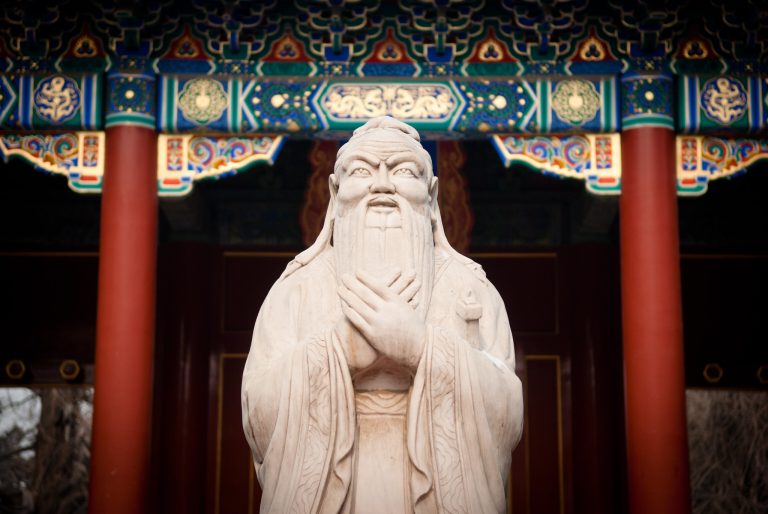The principle of “Benevolence,” as advocated by Confucius, is not only a social and political ideal but also an ethical and moral standard. The object of benevolence is to care for others. Based on the ideas of “benevolence and love,” Confucius advocated treating others with loyalty and forgiveness. This has had a profound influence in formulating the traditional Chinese virtues of honesty, generosity, and kindness. To this day, the principle is closely tied to education.
Grounded in sincerity
Confucius once asked his students to describe how they treat others.
Zi Lu said, “When others treat me with kindness, I treat them with kindness; when others treat me with unkindness, I treat them with unkindness.” Confucius responded, “This is the practice among barbarians who have no moral rectitude or rituals.”
Zi Gong said, “When someone treats me with kindness, I treat him with kindness; when someone treats me with unkindness, I lead him to goodness.” Confucius commented, “This is the way friends should behave toward each other.”
Yan Hui said, “When someone treats me with kindness, I treat him with kindness; when someone treats me with unkindness, I treat him with kindness and lead him to goodness.” Confucius said, “This is what should be done among families. If you can expand it and treat the world with sincerity, you are truly treating people with kindness!”

Upholding benevolence and respect
Success
You are now signed up for our newsletter
Success
Check your email to complete sign up
Yan Zi asked Confucius, “I want to treat people with benevolence, but how can I accomplish that? I want to keep the same character when I am poor as when I am rich – dignified without showing off bravery; and I want to have no trouble in life, associating only with those who have noble ambitions. Is this acceptable?”
Confucius replied, “In order to treat people with benevolence, one must first cultivate oneself and constantly improve one’s morality and state of mind. If you act the same when you are poor as when you are rich, you will be content and not be affected by desires; if you behave the same when you are lowly as when you are noble, you will always be humble and courteous; if you are dignified without intending to be bold, you will treat people with respect without doing them wrong; if you want to have no trouble in life, associating only with people who have noble ambitions, you will have to choose carefully who to make friends with, what to say and what to do. Your aspiration is very grand!
How to be a politician
Qi Gaoting visited Confucius and said, “I am not afraid of obstacles like the mountains and great distances. Wearing a straw raincoat and carrying a gift to pay my respects, I came to inquire about how best to serve the king, and I sincerely hope you can teach me.”
Confucius replied, “Stick to the principle of righteousness. Even at the risk of offending the king, you must not give up the principle. When a subject serves the king, it is not for the sake of serving the king, but only to work under the king, serving the king and the people.
Do not be impatient, but treat everyone with sincerity. Observe and uphold morality in all your words and deeds; recommend a superior man to the king when you find one, and keep wicked people away from the king when you see them.
Remove the evilness from your heart, and deal with the king in good faith, according to propriety and righteousness. You need to be smart and careful in what you say and do. Cultivate yourself according to propriety and righteousness, and lead society to follow those principles. In this way, even from a thousand miles away, you and the king will be as close as brothers. If you do not do what you say, or let your emotions guide you, and if you do not treat people according to propriety and righteousness, I am afraid that even if you live across from the king, it will be of no avail.”
Confucius believed that when interacting with others, one should start by being a good person. Treating people well is not an end in and of itself, but a way to raise one’s state of mind. He regarded righteousness, propriety, humility, and sincerity as the essential qualities of a superior man. A superior man can know “benevolence” through self-reflection, keep it in his heart, treat others with generosity, and live benevolently and righteously.
At all times, a superior man should take high moral standards as his guide in dealing with the world, hold fast to his spiritual purity, be kind to others, and cherish life, so that wealth cannot corrupt his mind, poverty cannot affect his integrity, and force cannot bend his will. This is what a superior man should do.
















